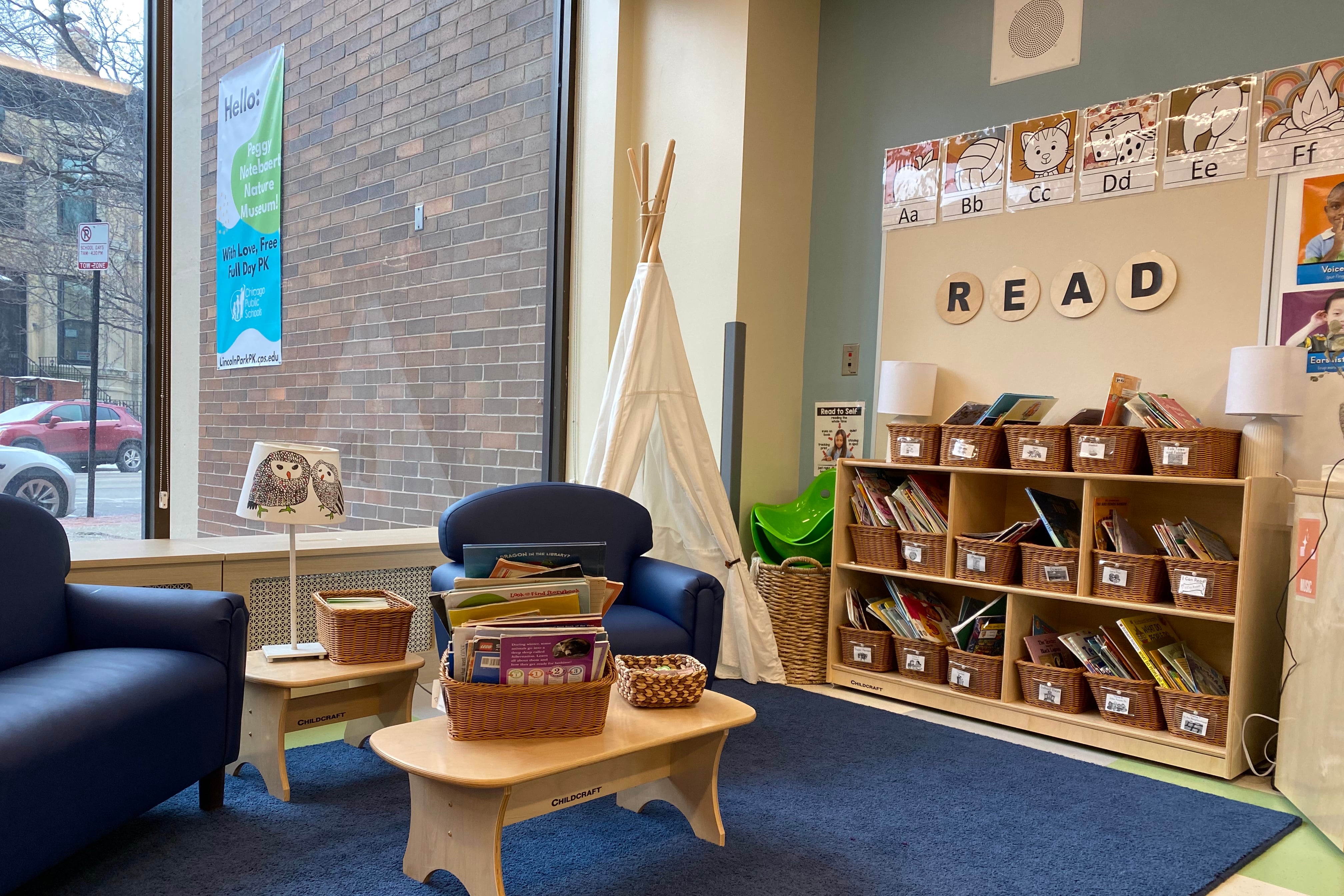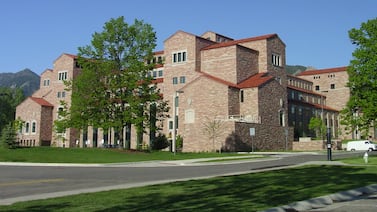Chicago families can now apply for preschool for the 2023-24 school year — marking the culmination of a yearslong effort to offer free universal access to the city’s 4-year-olds.
The initial application period runs through May 2 and offers will be made on May 19. After that, people can apply and will be admitted on a rolling first-come, first-served basis.
The Chicago Early Learning portal includes all full-day and half-day programs for 3- and 4-year-olds operating within Chicago Public Schools, including public Montessori options, as well as early childhood programs run by community-based organizations through the city’s Department of Family and Support Services.
Families can also apply by calling 312-229-1690 or at select public libraries. Registration events will also be held across the city during the month of April.
Is there a spot in CPS preschools for everyone?
Four-year-olds living in the city, regardless of family income, can now attend preschool for free at most of the city’s public schools.
“We’re pretty close to being fully universal,” said Leslie McKinley, chief officer for the Office of Early Childhood with Chicago Public Schools.
The district said it has 15,755 full-day spots for 4-year-olds and 6,704 half-day spots for 3-year-olds in Chicago Public Schools. Additionally, the city is funding 13,091 seats in community-based programs, 7,424 of which are for children over the age of 3. The remaining are for babies and toddlers.
Last year, 12,460 4-year-olds and 3,943 3-year-olds enrolled in district preschool programs. That’s up since the first year of the COVID pandemic, but enrollment has yet to return to pre-pandemic levels, when 14,300 4-year-olds and 3,192 4-year-olds attended pre-K in Chicago Public Schools.
Last year, roughly 3,500 spots went unfilled in the city’s public pre-K classrooms. Many were in high-poverty neighborhoods, an analysis by WBEZ found. Overall, birth rates and the number of school-aged children in Chicago has declined in the past decade. But a Chalkbeat analysis of census data indicates there are nearly 65,000 3- and 4-year-olds living in Chicago.
How do I find a preschool near me and apply?
Families can apply to up to five programs and are able to search what’s offered using an interactive map. The application can be submitted through GoCPS, which is also where results will come through.
Applicants should rank programs in order of preference. The application asks for demographic, residency, and income information, but no paperwork is required until you enroll. You can save your application and come back to it later if you aren’t ready to submit it right away or need to dig up information that you don’t have at your fingertips. This video provides a helpful walkthrough.
Many public schools are offering tours and information sessions April 24-28. The district recommends calling schools directly or visiting their websites to find out when they’ll be offering these sessions.
When will I know if my child got into a preschool program?
All applications submitted by May 2 will receive an offer on May 19. Families can still apply after that, and will get offers on a rolling first-come, first-served basis.
For full-day pre-K offered through Chicago Public Schools, 4-year-olds get priority. Children are also prioritized based on their proximity to a school, whether or not they have siblings enrolled, their family’s income, and whether or not they have a disability.
Unlike previous years, applicants will be given waitlist numbers for programs where they do not initially get offers. If an applicant gets waitlisted and wants to apply to a different program, they can call the Chicago Early Learning hotline at 312-229-1690.
Another word of caution: Waitlist numbers could change almost daily, McKinley said, because spots are prioritized based on need.
Once I get an offer from a pre-K program, then what?
Applicants can accept or decline offers through the GoCPS portal, using the hotline, or by calling or visiting the school directly.
In order to enroll, families will need to provide a birth certificate or passport to prove the child’s age. They will also be asked to provide documentation confirming income and showing they live in Chicago, though alternative forms are available if a family has no income or is in a temporary living situation. Proof of citizenship is not required.
If your 3- or 4-year-old attends their neighborhood school or is admitted into the public Montessori programs at Drummond or Suder for pre-K, they are guaranteed a spot in kindergarten and beyond. But if your child chooses a pre-K outside their neighborhood or at another magnet school, they may need to reapply for kindergarten.
More details are available on the Chicago Early Learning website. And if you still have questions, send them our way at chicago.tips@chalkbeat.org.
This story has been updated with new information from district officials clarifying how waitlists for preschool programs work.
Becky Vevea is the bureau chief for Chalkbeat Chicago. Contact Becky at bvevea@chalkbeat.org.






